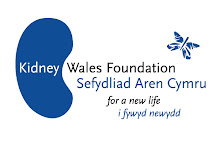What the NHS can learn from organ donors
By Margaret McCartney
Published: December 6 2008 00:27 | Last updated: December 6 2008 00:27
As an unschooled observer of the money markets, I have been struggling in recent months to understand what anything is actually worth. In healthcare, there is a similar problem, though it makes for rather less exciting headlines. All NHS procedures have to be costed to the last penny, and reported on in “completed care episodes”. But just like financiers, healthcare professionals can’t put an exact price on everything.
Blood, for example, is a commodity given free of charge by people willing to sacrifice time and comfort in order to make a significant difference to someone else. Bone marrow is another “gift”, donated by those who know they will not be repaid financially for being inconvenienced. And then there are the gifts given in the aftermath of death: corneas, kidneys, livers, skin, hearts… all capable of transforming a stranger’s life.
A living person can donate a kidney, too, if the genetic match is close enough. The donor need not be a relative – a spouse or friend can also volunteer. And now, if enough “couples” of kidney patient and willing donor can be found, then they, if not genetically compatible themselves, can be “paired” with other couples, who can then “swap” kidneys between each other. Altruistic kidney donation, too, has been recently approved in the UK. This means that someone can donate a kidney to a complete stranger, simply because they want to.
Altruism fuels some parts of the NHS, but in others it has been squeezed out. In the past, people would unthinkingly stay late to organise or fix things that would benefit others, for which they would not be paid. This boosted camaraderie and morale, both of which served patients. Now, working life is rigorously accounted for, and junior doctors must go home on time.
Yet altruism is not just good for the recipient, it can also be good for the donor. Giving means that one feels involved and responsible; it means that one has a role worth playing. Blood and bone marrow donors know this, as do kidney donors and families of posthumous donors. The altruism commonly required a generation or two ago – to risk one’s life in the face of disease or war – has all but evaporated. But there is still a place for it, and it is worth a lot.
Margaret McCartney is a GP in Glasgow.
margaret.mccartney@ft.com
Subscribe to:
Post Comments (Atom)









No comments:
Post a Comment